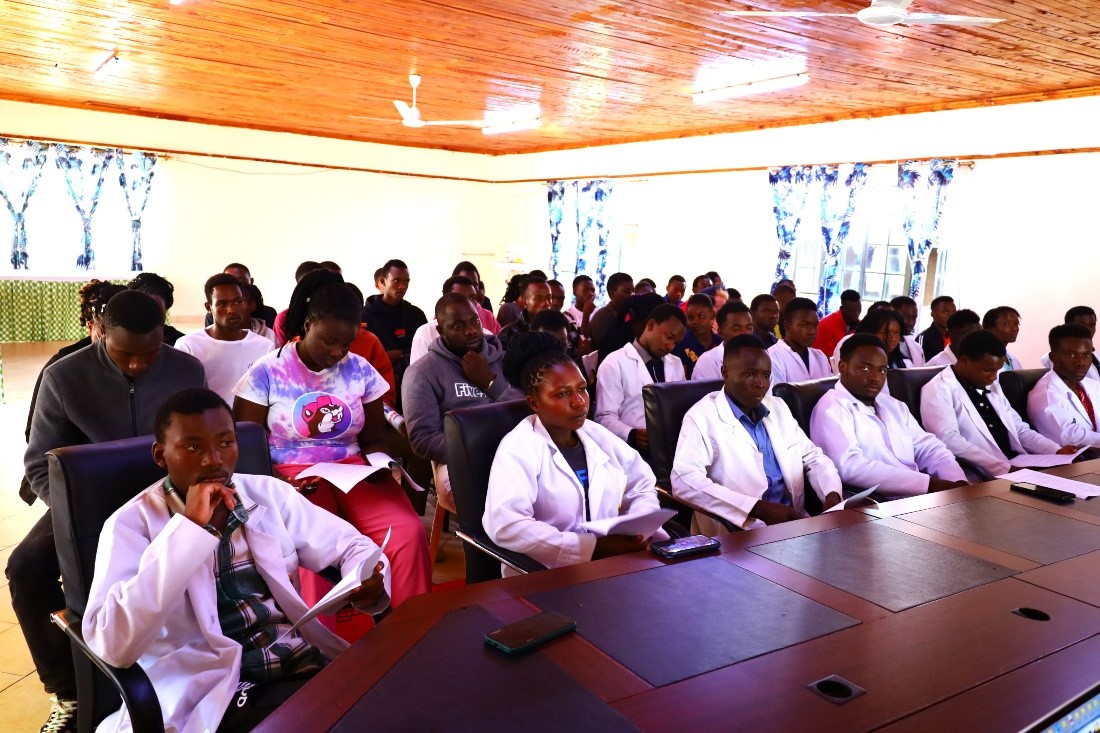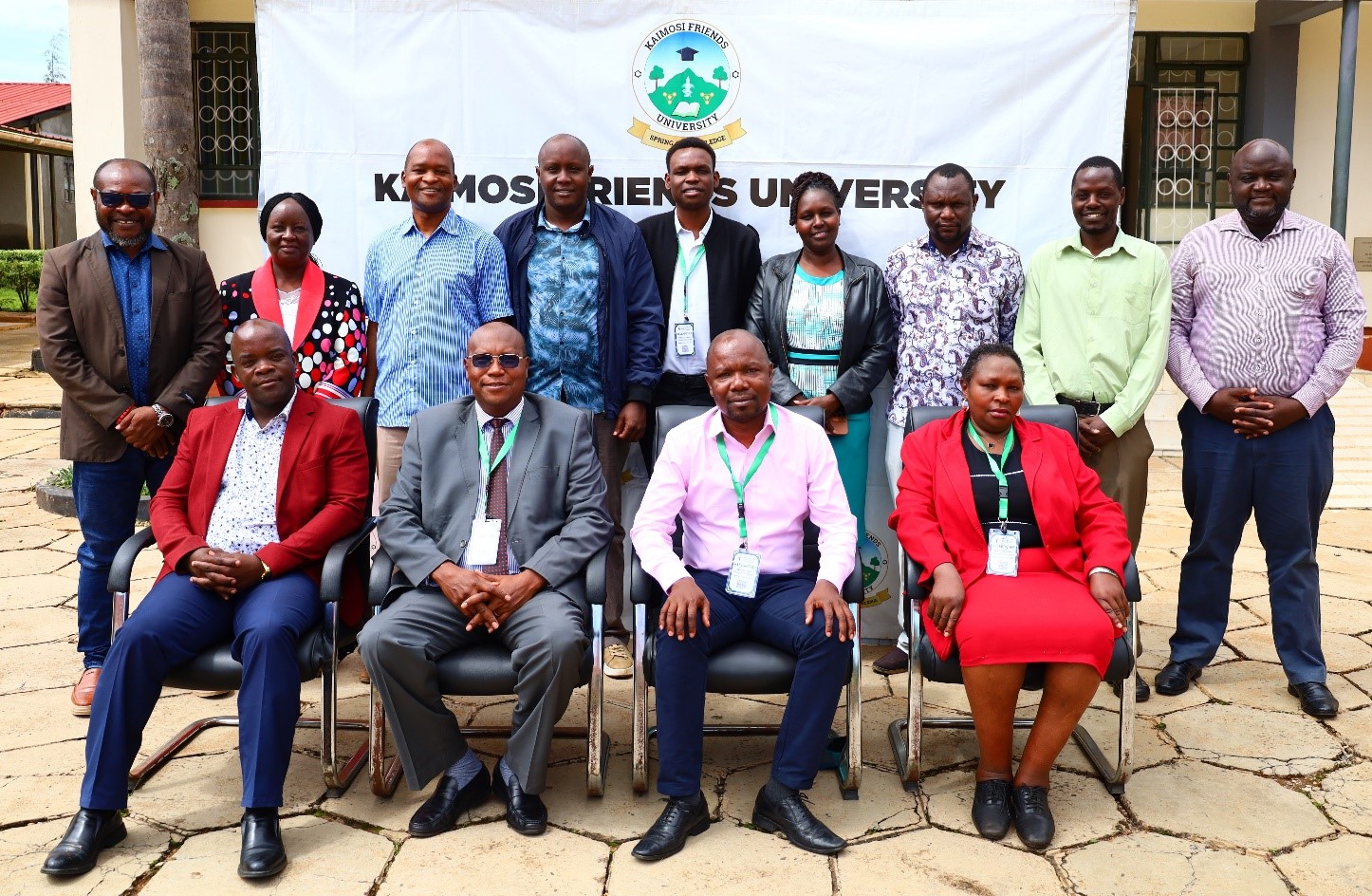Representatives from the Commission for University Education (CUE), led by Prof. Jackson Too, Head of Research and Innovation, today visited Kaimosi Friends University (KAFU) to conduct a survey on technology adoption and the experiences of using disruptive technologies within the institution.

Prof. Jackson Too the Head of Research and Innovation at Commission for University Education outlining the commission's survey on technology adoption during his address to Kaimosi Friends University
Prof. Too stated that the primary goal of the consultative meeting was to assess the level of technological integration in universities. He specifically highlighted the need to understand KAFU's preparedness and adaptation strategies for incorporating disruptive technologies in teaching, learning, and research activities.
Prof. Kelvin Omieno, Associate Professor and Dean of the School of Computing and Information Technology at KAFU, who chaired the meeting, acknowledged the increasing prevalence of disruptive technologies. He cited the Open University of Kenya as a prime example of successful technology adoption in higher education.

The next generation of innovators: Kaimosi Friends University students attentively follow the discussions on technology adoption and its impact on their learning.
"The COVID-19 pandemic, despite its challenges, served as a catalyst for embracing online learning," Prof. Omieno noted. He also expressed gratitude to the Kenya Education Network (KENET) for providing alternative online learning platforms such as Zoom, Google Meet, and Google Classroom.
Prof. Omieno further emphasized KAFU's commitment to integrating disruptive technologies, highlighting the establishment of a functional Learning Management System (LMS). He also pointed to the university's well-equipped Open Distance and e-Learning (ODeL) center.
"We are actively exploring various platforms to reach a wider student population and accommodate common courses that our physical infrastructure cannot currently support," he explained.
The discussions also addressed the challenges KAFU faces in adopting these technologies, with budgetary constraints being a significant obstacle. Participants emphasized that increased funding and support would be crucial for equipping laboratories with advanced infrastructure and resources. Internet connectivity issues and the need for mindset shifts among both students and lecturers were also identified as key challenges.
Furthermore, the ethical implications of technology use in universities were a central point of discussion. Dr. Okennwa, Dean of the School of Health and Social Sciences, stressed the importance of prioritizing the ethical and responsible use of generative Artificial Intelligence.
"Technology should enhance, not replace, critical thinking," Dr. Okennwa asserted, advocating for sensitization and training programs on the responsible application of various disruptive technologies. He also urged universities to establish legal frameworks governing their use.

Representatives from the Commission for University Education (CUE) and Kaimosi Friends University (KAFU) faculty members during a consultative meeting on technology adoption at KAFU. The meeting, led by Prof. Jackson Too (CUE) and Prof. Kelvin Omieno (KAFU), focused on surveying the use of disruptive technologies in teaching, learning, and research at the university
The meeting saw the participation of faculty members from the School of Computing and Information Technology, the Director of the Directorate of Information Communication Technology, the Director of ODeL, and the Dean of the School of Education and Social Sciences.
